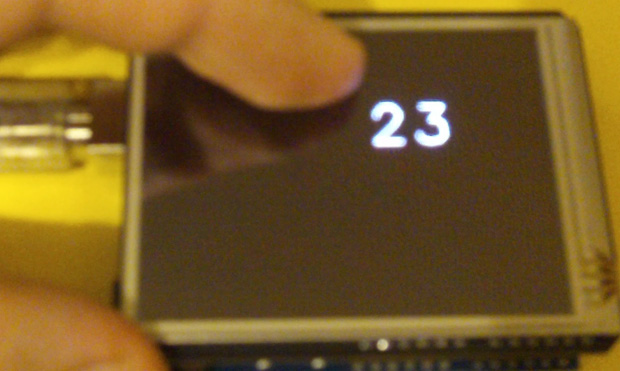
Write operations to this memory are timed by a dedicated timer which is independent of the main system clock (- reportedly there are some chips (not types!) where measurements indicated that this may not be the case) (edit: note that in some AVRs, ATTiny25/45/85 for example, the EEPROM timing is derived from the internal RC oscillator, so that no entropy can be gathered when this oscillator is also selected as the system clock source) this may depend on the main clock source (internal R/C vs.

This opens a couple of very interesting possibilities on Atmel AVR ♜s (which are used in the Arduino) depending on the ♜'s capabilities: In fact, entropy can even be harvested from just two independent clock sources for instance by timing cycles of one clock via the other clock. Such an event, which is uncorrelated with the running timer, may be the push of a button by a user, the start of communication initiated by another (sub-)system or IC, or basically any other event not triggered by the ♜ (or any synchronous subsystem) itself. Using a high-speed timer, true entropy can be gathered by reading the timer value in response to some asynchronous event. In microcontroller environments a good source of entropy that is seldom thought of is the timing of events. Even the simplest deterministic sequences of values, like, when hashed produce data that will most likely pass any and all statistical randomness tests pretty well, although it is not "random" at all. Using cryptographic functions, like (one way) hash functions or cipher algorithms, usually easily produces the desired result as well this comes at a cost though: The "mixing" of those functions is by design extremely strong, which makes it impossible to determine the quality (= randomness) of the source data after the transformation.

So, in order to generate random values with the desired properties (see above), some de-biasing needs to be done: A randomness extractor of some kind is needed.

In reality, those values will often be (more or less) normally distributed (Gauss distributed) around some avarage value with some characteristic standard deviation, for example around 500 10 bit per sample. When measuring analog input with, say, 10 bit resolution, ideally the range of numbers gathered from the measurement will cover all values from 0 to 1023 and each value will occur with the same frequency (or probability) as any other value from that range. Un-biased, uniformly distributed numbers of high entropy are commonly those one wants, because their properties (not values) are somewhat normalized and can therefore be more reliably predicted. EMI is also likely to interfere with the measurement a regular cell phone placed reasonably close to the circuit during a call will most likely wreak havoc on any analog signals. However, as was stated before, the measured data is rarely un-biased.Īnalog electrical measurements may also be more or less susceptible to uncontrollable influence or even attacks from outside, e.g.

Analog sources always have some unpredictable noise superimposed which can be "harvested".
Generate random number arduino how to#
In this note i will show the examples of how to generate random numbers and create random delays in Arduino using the randomSeed() and random() functions.Taking analog "real world" measurements usually is a good source of entropy (a.k.a.
Generate random number arduino generator#
This shuffles the random() number generator each time you start the Arduino sketch. A randomSeed(analogRead(0)) in Arduino initializes the pseudo-random number generator that reads the random analog noise from an unconnected analog pin 0 and floats to relatively random values between.


 0 kommentar(er)
0 kommentar(er)
